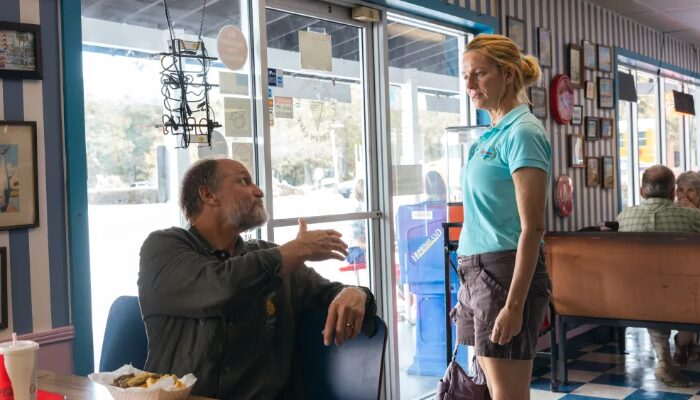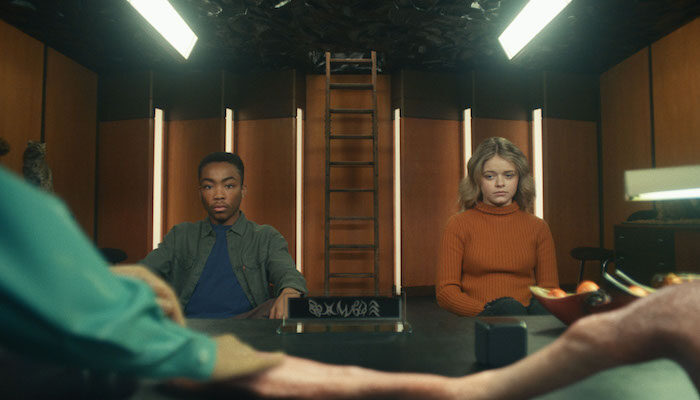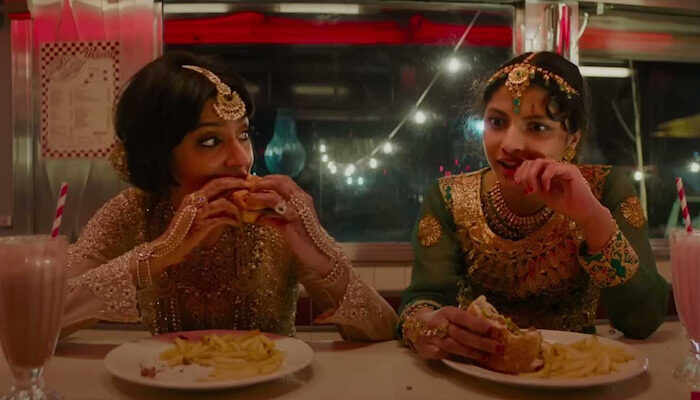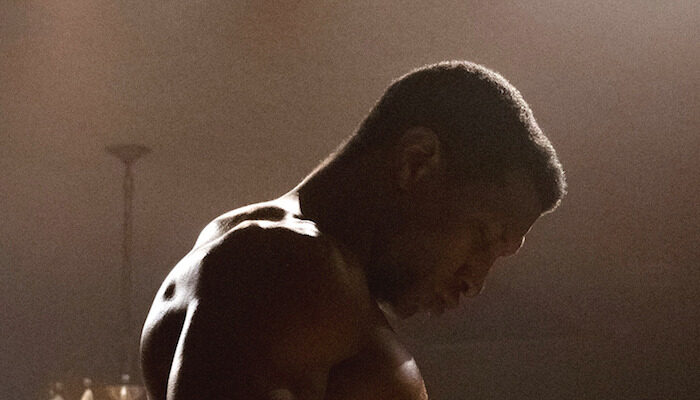VICTIM/SUSPECT (2023): Documentary Spotlights Poor Police Response for Rape Victims but Only So Far
Women Victimized Twice for Reporting Rape
Nancy Schwartzman spotlights Rachel de Leon’s investigation of biased police procedures dealing with sexual assault victims in Victim/Suspect, presented at the 45th Annual Sundance Film Festival.
Ms. Schwartzman’s documentary, Victim/Suspect, examines the heinous consequences of reporting sexual assault to police with unflinching scrutiny. The most profound revelation in this chronicle is how little official attitudes have changed toward rape victims, at least in some quarters.
STATISTICS & STRATEGIES
As Ms. de Leon points out, according to well established statistics, victims of sexual assault are already at a significant disadvantage. Already traumatized by the event, these persons are not in the sharpest frame of mind. This strikes at the heart of the event, which somehow has attained some sort of monstrous precedent — the tendency for the victims to blame themselves. Not to mention the added stress of sharing intimate details with an officious, patronizing bureaucrat, as bright and cold as the windowless room in which the victim’s interrogation takes place.
Not to suggest that the cops were derelict in their duties investigating the rape cases involving two college students whom Ms. Schwartzman studied, far from it. The police spared no effort in bringing a guilty parties to justice. They indeed went into high gear — after the victims themselves, that is, with an amazingly efficient, well practiced method known as the Reid Technique.
THE REID TECHNIQUE
The Reid Technique has been the universal method used for police interrogation since the 1960’s. The following simplifies its nine step method explored in Victim/Suspect:
First, hours of inquisition were spent to undermine the young women’s validity. Second, having coerced admissions, summary charges of false reporting and then arrest, resulting in convictions. One enterprising police department even went so far as to post details of the arrest on social media, complete with the woman’s address and unflattering photos. Silence or retraction usually follows this sort of libelous intimidation.
Conversely, the men accused are sometimes questioned as well. But the Reid Technique isn’t used here; too time consuming. After all, the police have better things to do. Instead, a perfunctory home visit and a few dismissive inquiries slipped into a casual conversation will suffice. The impact these men experienced afterward was not detailed in this film. It is quite possible, however, that they gained as much esteem for their prowess as ‘alpha males’ as damage to their reputations as predators.
SILVER LININGS
But Ms. Schwartzman also points out a few triumphs for the victims of the rape reporting dilemma. But these require diligence, tenacity, and a thick skin. And the payoff is comparatively meager. Payouts and criminal records expunged are a good start, but not enough to break the insidious cycle of tribal bias.
COMPLICIT TRIBALISM
The phenomenon of sexual abuse is just a symptom of a complex problem, deeply rooted in tribal attitudes towards sex (and gender) in general. Consider the following, taken individually:
The Blue Wall of Silence, or ‘cop culture,’ as officers themselves refer to it, has been a long time in the making and may explain a lot in response to reports of rape. No other group is held to higher standards by a scrutinizing public than law enforcement. The authority vested in police officers confers a unique dilemma, that individual weakness threatens tribal strength.
And to be fair, the police have a particular internal struggle of their own: battling a two-front war. Sworn officers too often face communities too contentious or reluctant to serve effectively. The other comes from on high; administrators and politicians who require results expedient enough to justify their budgets. But everyone knows that there is no pressure like that of our peers when it comes to image.
Patriarchy and its ingrained, overarching, top-down, macho-marginalizing effect on societies worldwide still has a lot to answer for, despite recent pushback. For the purposes of this article, neighborhood institutions like schools and houses of worship have the most bearing, but in particular, the nuclear family.
Family Tribe may or may not support the victim, depending on a number of factors, foremost of which is the family’s reputation in the community and the extent of compromising privacy. Incredibly, family members have often stood shoulder to shoulder with police and blamed victims for moral or constitutional weakness. Versions of you asked for it or how could you allow it shout out as often as sympathy from the Neighborhood Tribe, encompassing not only next door neighbors but social media sites.
POWER PLAY
‘No means no.‘
That’s the mantra that should play out, and apparently far more often than it does. But the question remains, where is the line drawn, objectively speaking, between rape and seduction?
That question has been posed before in our society. So far, in the court of public opinion the trial is still in session. Most recognize that the sexual dynamic is some from of power play, almost certainly when it comes to rape. (Trust is also an important component and deserves due attention that goes beyond the scope of this article.)
For the sake of argument (and in the broadest cultural context), we tend to approach sexual situations much like adolescents do. Modern decorum leaves us obsessed and embarrassed, often shamed, at the mere mention of sex, skimming past it with slights or jokes or euphemisms, as though it were some stepchild so stunted we can neither look away nor dismiss.
Put bluntly, it seems fucking is both overrated and underestimated. Overrated, because we expect more emotional value than it can practically sustain over time. Underestimated, because in reality its emotional cost is especially vulnerable to the law of diminishing returns. And how much of this is bred in our bones versus tribal bias programmed from the cradle?
WORDS OF CAUTION — AND HOPE
With good reason it may be difficult for some, like myself, to sit through Victim/Suspect without outbursts of fury, outrage, or shoutouts for vengeance against law enforcement agencies derelict in supporting — or downright antagonizing — victims of sexual assault. The fact that the judicial system finally vindicated (or compensated) the women in the film is certainly gratifying, but not enough to offset their lifelong emotional and psychological scars.
On the other hand, we recognize that this issue has not gone unnoticed by various agencies nationwide, and their genuinely serious efforts to address it. The United States Department of Justice, for example, provides specific guidelines for law enforcement on its website. In the private sector, the nonprofit Police Executive Research Forum, composed of seasoned leaders in the law enforcement community, provides research studies and support services to police departments, including those relating to sexual assault.
Victim/Suspect rightly and expertly challenges the willingness of law enforcement agencies to use the resources available to improve attitudes and procedures for victims of sexual abuse. But in this author’s opinion, shunning or shaming only go so far. Our ultimate remedy requires focusing not just on today, but tomorrow: transforming our collective identity regarding sex and gender themselves.
Leave your thoughts on this Victim/Suspect review and the film below in the comments section. Readers seeking to support this type of content can visit our Patreon Page and become one of FilmBook’s patrons. Readers seeking more Sundance Film Festival news can visit our Sundance Film Festival Page, our Film Festival Page, and our Film Festival Facebook Page. Readers seeking more film reviews can visit our Movie Review Page, our Movie Review Twitter Page, and our Movie Review Facebook Page.
Want up-to-the-minute notifications? FilmBook staff members publish articles by Email, Feedly, Twitter, Facebook, Instagram, Tumblr, Pinterest, Reddit, Telegram, Mastodon, and Flipboard.
Related Articles
FilmBook's Newsletter
Subscribe to FilmBook’s Daily Newsletter for the latest news!













